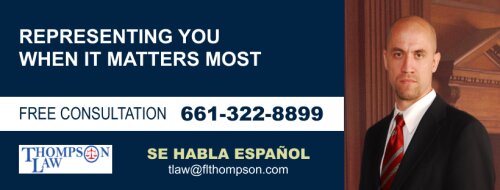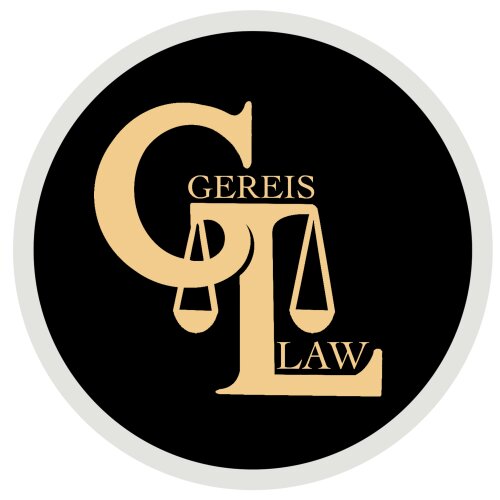Best Speeding & Traffic Ticket Lawyers in Vermont
Share your needs with us, get contacted by law firms.
Free. Takes 2 min.
Or refine your search by selecting a city:
List of the best lawyers in Vermont, United States
About Speeding & Traffic Ticket Law in Vermont, United States
Speeding and traffic ticket laws in Vermont are rules and regulations governing the safe operation of motor vehicles on Vermont's roads and highways. These laws establish speed limits, traffic control processes, and penalties for failing to observe road rules. Law enforcement officers issue traffic tickets for violations such as exceeding the speed limit, running red lights, or failing to yield. The consequences of receiving a ticket in Vermont can include fines, points on your driving record, potential license suspension, and increases in insurance premiums. Understanding your rights and the process for contesting tickets is crucial if you are cited for a traffic violation.
Why You May Need a Lawyer
While many people simply pay their fines and move on, there are situations where hiring a lawyer is highly beneficial. If you believe you were wrongly cited, if you face severe penalties such as license suspension or substantial fines, or if a ticket will trigger significant insurance increases, legal counsel can help. Additionally, professional drivers or those with commercial licenses can face career-impacting consequences from even a minor traffic violation. Lawyers knowledgeable in Vermont traffic law can help contest tickets, negotiate reduced penalties, and guide you through complex legal procedures.
Local Laws Overview
In Vermont, speed limits are clearly posted and generally range from 25 mph in urban areas to 65 mph on certain interstates. Vermont uses a point system to track traffic violations. Accumulating too many points in a specific timeframe can result in a suspended license. Tickets may be issued for actions including speeding, reckless driving, running stop signs, parking violations, and improper vehicle registration. Drivers have the right to contest tickets by requesting a court hearing. Some traffic citations may also have criminal implications, such as DUI or reckless endangerment. Each violation will specify the penalty amount and point consequences, listed on the ticket itself.
Frequently Asked Questions
What happens if I ignore a speeding or traffic ticket in Vermont?
Ignoring a ticket can result in additional fines, a suspended license, or even a warrant for your arrest in certain cases. The Vermont Judicial Bureau may add penalties and send notifications to the Department of Motor Vehicles.
How can I contest a speeding or traffic ticket?
To contest a ticket, follow the instructions on the back of the citation, which usually involves notifying the Vermont Judicial Bureau by the deadline. A hearing date will be scheduled where you can present your case.
Will a Vermont speeding ticket affect my out-of-state driving record?
Most states have reciprocity agreements with Vermont, meaning a ticket received in Vermont can affect your license and insurance rates at home.
How does the Vermont point system work?
Each moving violation adds a specific number of points to your driving record. Accumulating 10 points or more within 2 years usually leads to a license suspension.
Can a lawyer really help me get a ticket dismissed?
A lawyer may be able to identify errors, procedural issues, or mitigating circumstances that can lead to a dismissal or reduction of charges.
What are the penalties for speeding in Vermont?
Penalties vary based on how much over the speed limit you were driving, but typically include fines and points on your record. Excessive speeding or repeat offenses may result in harsher penalties.
Does attending traffic school remove points from my record in Vermont?
Vermont does not generally offer a point reduction for attending traffic school, but you should check with the court or DMV for any programs that may apply.
What if I am a commercial driver and get a ticket?
Commercial drivers face stricter regulations and more severe penalties for violations, which can affect their commercial license status and employment.
How long do traffic violations stay on my Vermont driving record?
Most violations stay on your Vermont driving record for at least 2 years. Serious offenses may remain for longer periods.
If I lose my case in court, can I appeal?
Yes, you can appeal the Vermont Judicial Bureau's decision to the Vermont Superior Court. Deadlines and procedures apply, so timely action is important.
Additional Resources
- Vermont Department of Motor Vehicles (DMV): Provides information on points, license status, and traffic laws. - Vermont Judicial Bureau: Handles traffic ticket disputes, payments, and hearings. - Vermont State Police: Offers updates on traffic enforcement and statewide safety initiatives. - Local legal aid organizations: Offer assistance for those needing help with traffic matters. - The Vermont Bar Association: Can help you locate a lawyer experienced with traffic violations.
Next Steps
If you have received a speeding or traffic ticket in Vermont, start by carefully reviewing the citation for all instructions and deadlines. Gather any evidence or documentation relevant to your case, such as photographs or witness contact information. Decide whether you want to pay the fine or contest the ticket. If contesting, respond in writing by the deadline and prepare for your court appearance. If you are facing serious penalties, repeated violations, or need advice on your options, consider consulting with a lawyer who specializes in Vermont traffic law. Legal professionals can assist with negotiating reduced penalties, representing you in hearings, and protecting your driving record.
Lawzana helps you find the best lawyers and law firms in Vermont through a curated and pre-screened list of qualified legal professionals. Our platform offers rankings and detailed profiles of attorneys and law firms, allowing you to compare based on practice areas, including Speeding & Traffic Ticket, experience, and client feedback.
Each profile includes a description of the firm's areas of practice, client reviews, team members and partners, year of establishment, spoken languages, office locations, contact information, social media presence, and any published articles or resources. Most firms on our platform speak English and are experienced in both local and international legal matters.
Get a quote from top-rated law firms in Vermont, United States — quickly, securely, and without unnecessary hassle.
Disclaimer:
The information provided on this page is for general informational purposes only and does not constitute legal advice. While we strive to ensure the accuracy and relevance of the content, legal information may change over time, and interpretations of the law can vary. You should always consult with a qualified legal professional for advice specific to your situation.
We disclaim all liability for actions taken or not taken based on the content of this page. If you believe any information is incorrect or outdated, please contact us, and we will review and update it where appropriate.
Browse speeding & traffic ticket law firms by city in Vermont
Refine your search by selecting a city.









